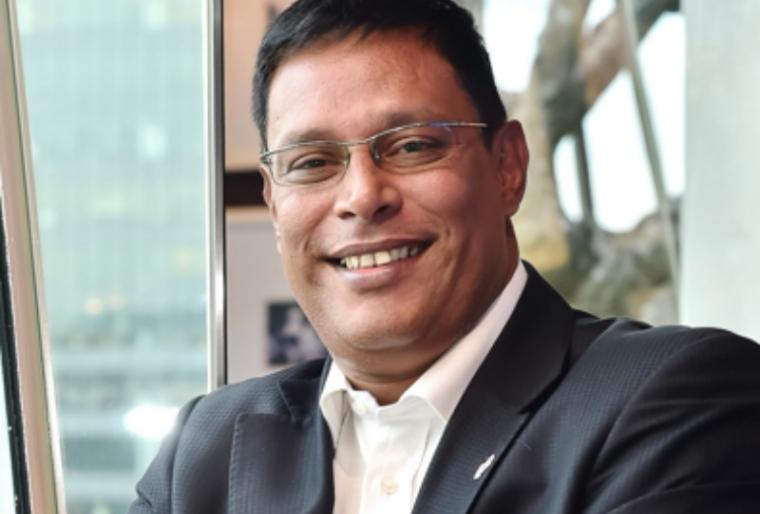Malaysia’s ruling Pakatan Harapan (PH) coalition is in turmoil. Malaysia’s fractious political scene is not about to quieten down any time soon.
Australian companies that do business in Malaysia, and those that intend to do so, would do well to keep an eye on the politics of the country. Political intelligence is business intelligence.
One man acutely aware of the importance of Australia-Malaysia commercial relations is Bobby Varanasi, an Executive Committee member of the Malaysia-Australia Business Council.

“The business relationship between the two countries is very strong,” he told InnovationAsia in a wide-ranging telephone interview from his office in Kuala Lumpur.
“Australia’s banks and construction companies are especially active in Malaysia, and there are major partnerships in the education sector,” Mr Varanasi said.
“What a lot of people may not realise is just how important the food and beverage industry is – one third of all the beef consumed in Malaysia comes from Australia, and more than half the wine.” He didn’t mention the traffic in laksa and Peranakan cuisine in the opposite direction.
Mr Varanasi is constantly befuddled by Malaysian politics, as many Australians are with political the scene in our own country.
“Prime Minister Mahatir is a remarkable man, but he’s 95 years old. Malaysia needs political stability. It needs more inclusivity and domestic resilience.”
The latest problems emerged when the PH coalition lost a recent by-election by a massive margin. The vote in a previously safe seat indicated a profound drop in support for Dr Mahatir’s government, which took over from the long serving, but scandal plagued UMNO (United Malays National Organisation) in a surprise election result in 2018.
Dr Mahatir was himself a former UMNO Prime Minister, but left it because of its corrupt practices.
Both government and opposition are coalitions of many parties, split on ethnic, regional and ideological lines. The jostling for influence on both sides has been likened to the Game of Thrones TV series. There will most likely be a realignment, and when Dr Mahatir inevitably shuffles off it will be open season.
“It’s important for Australian companies doing business in Malaysia to be aware of the politics and of the sensitivities arising from them,” says Mr Varanasi.
“Australia is culturally very different from Malaysia, and a little understanding of local realities will go a long way.”
There are three key things to take into account for Australian companies wanting to do business in Malaysia, he advises.
“The first is to look at Malaysia holistically. Do your homework. Most Malaysian businesses are not as mature as those in Australia and there are many opportunities for people to understand the local scene. Start small by addressing one issue or problem and then grow gradually.”
The second piece of advice is to find local partners. “Not to put too fine a point on it, there is not the same standard of business ethics in Malaysia as there is in Australia. Malaysians are essentially don’t trust anybody initially, owing to long-standing cultural influences that requires trust to be earned over time.
“Build trust with a full partner first. Don’t look for a distributor or reseller, because that won’t work. You need to treat people as equals. Who you know is much more important than what you know. That can come later.”
Finally, says Mr Varanasi, you must have a local footprint. “Fly-in fly-out won’t work. Nor is it enough to operate out of Singapore. Putting an office on the ground will show that you are there for the long haul.”
Australia has a very long relationship with Malaysia. The Malaysia-Australia Business Council is 35 years old. Ties are particularly strong in education, with Malaysia the third in sources of foreign students to Australia after India and China. Adelaide, Curtin, Monash, Southern Queensland and Swinburne Universities all have campuses in Malaysia.
Another major tie between the two countries is defence. For many years Australia maintained its only offshore air base in Malaysia, at Butterworth near Penang.
Australian troops were very involved in anti-Communist Malayan Emergency in the 1950s and the ‘Confrontation’ with Indonesia in the 1960s, with guerrilla warfare in the jungles of Borneo.
Not many Australians today remember, if they ever knew, that 39 Australians were killed in the Emergency and 23 during the Confrontation. Taken together, they were longer and bloodier than Australia’s involvement in Afghanistan.
Mr Varanasi has been an Exco member of the Malaysia-Australia Business Council for four years. He is Chairman and chief executive of Matryzel Consulting, a Kuala Lumpur based consultancy specialising in government ICT related policies and cross-border trade. The Australian and Victorian governments are major clients.
InnovationAsia asked him about the state of Malaysian-Australian relations. Have we recovered from Paul Keating’s famous 1993 description of Dr Mahathir as a ‘recalcitrant’?
“Yes, that’s a long time ago,” laughs Mr Varanasi. “But it caused problems at the time and is a good reminder of the importance of cultural sensitivity. Actively disagreeing with people doesn’t work well in Southeast Asia and insulting them certainly doesn’t. You need to be polite.”
Not that Malaysian politics at the moment are terribly polite. You don’t have to scratch the surface far to find significant conflict. Malaysia politics is likely to be volatile for many years to come,” he said.
“The Australian companies that will do best in Malaysia of those that understand the sensitivities and the Malaysian way of doing things, while continuing to focus on sustainable value – an opportunity Malaysians truly want and are willing to commit to.”
Do you know more? Contact James Riley via Email.
